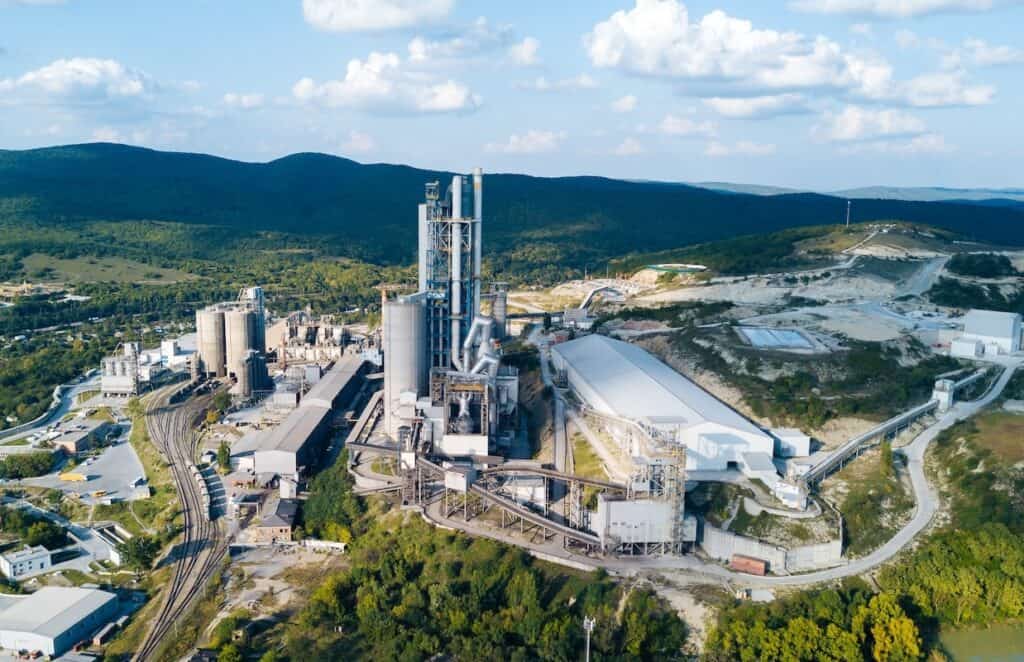
The global construction industry is on a long, slow journey towards decarbonisation, but a staging-post has now been reached with the advent of new protocol for low-carbon cement in the United States.
Working in consultation with key stakeholders, sustainability advisory specialist ClimeCo lead the development by Climate Action Reserve (CAR) of the new US Low-Carbon Cement Protocol.
This groundbreaking protocol establishes a first-of-its-kind pathway to generate voluntary carbon credits from the production of novel and underutilised alternative cementitious materials (ACMs) and supplementary cementitious materials (SCMs).
Funds generated by these credits will be used to incentivise production and scaled-use of innovative, less carbon-intensive materials to meet growing demand, reduce emissions and help enable exponential positive change.
Tackling the emissions crisis in the industry
Over the course of more than 18 months, ClimeCo worked closely with numerous industry stakeholders, including the likes of Eco Material Technologies and the Portland Cement Association, seeking comment and gathering inputs to help create and refine this important collective effort.
The new protocol was created to address a pressing emissions crisis in the cement industry. This is a big ask, with concrete currently the second-most-used material by mass, behind only potable water.
As the key binding ingredient in concrete, cement production accounts for about 8% of global CO2 emissions, largely due to the creation of an intermediary product called clinker.
This impact can be mitigated by using less polluting SCMs. Such alternative solutions are also becomingly increasingly attractive in the current market, emerging at time when traditional SCMs are declining in supply, making them difficult to source for many cement and concrete manufacturers.
Going forward, however, money is an issue.
The Global Cement and Concrete Association (GCCA) has already highlighted the need for new investment in its Roadmap for Net Zero Concrete, where it acknowledges that the sector cannot scale low-carbon cement to the degree required to meet targets without additional financing.
Voluntary carbon credits and production funds
In response, the protocol creates a tested and valid pathway for companies to generate voluntary carbon credits (VCCs) and direct much-needed funds into production of additional cementitious materials. These materials not only serve to fill the worsening supply void, but also help create the scale necessary to displace carbon-intensive cement manufacturing.
Also recognising the demand for VCCs that demonstrate transparency and genuine impact, ClimeCo and its partners worked to ensure that the protocol follows strict rules on additionality, permanence, ownership and quantification in generating and awarding offsets.
To earn credits, manufacturers must produce usable materials that are widely recognised as beyond business-as-usual and that surpass regulatory requirements.
Eligible components include natural pozzolans (such as volcanic ash), calcined clay, rice husk ash, and harvested and beneficiated coal ash, which has the added benefit of cleaning landfills.
With progress urgently needed, time is of the essence, says ClimeCo President and CEO Bill Flederbach:
“While demand for cement has never been higher, it remains an exceptionally difficult-to-abate industry. This new protocol demonstrates the power of credible, validated and science-based voluntary carbon credits in greatly accelerating the pace and adoption of environmental reforms.“
Realising widespread change calls for an inclusive and collaborative ethos, he adds:
“The protocol also confirms ClimeCo’s belief that by engaging the right partners and taking a holistic approach, every industry and every company, even those facing the biggest challenges, can make a huge difference.”
Voluntary carbon credits and production funds
ClimeCo offers a full range of sustainability advisory with a balance of industrial and nature-based carbon solutions designed to meet the diverse needs of clients and their climate programmes. The company also provides specialised technical solutions for hard-to-decarbonise industries.
Understanding the importance of setting an example for honest and transparent reporting of environmental, social, and governance (ESG) performance, ClimeCo produced its first external Impact Report in 2022. It has also recently published a four-part editorial series on Transparency In Developing Carbon Credits to help explain how credits are created and what factors make them high quality.
Further Reading:
- More about Climate Action Reserve (CAR); and the new US Low-Carbon Cement Protocol;
- More about ClimeCo; and its series on Transparency In Developing Carbon Credits;
- More on the Global Cement and Concrete Association (GCCA); and its Roadmap for Net Zero Concrete;
- Also on SustMeme, Scottish facility wins £500K grant to support circular cement;
- Also on SustMeme, Critical minerals investor to be first $1bn unicorn;
- Also on SustMeme, How to equip construction with tools to decarbonise;
- Also on SustMeme, First carbon-free recycling plant for steel;
- Also on SustMeme, Is a fossil-free future within reach for steel?
Check out the full archive of stories on the SustMeme Built Environment Channel, now available to Sponsor.






